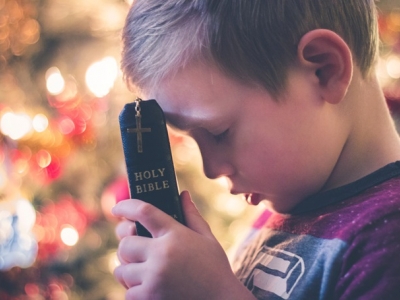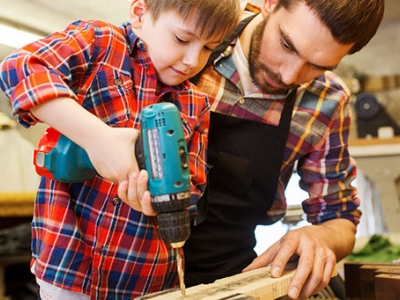
My number one piece of parenting advice
Turning priorities into habits.
My friend and I had our first babies just days apart. It was wonderful to have a close friend to empathise with in the ups and downs of those first few months and years. We used to look at other mums in our church family, those with children older than ours, and wish they would tell us those essential tidbits of information and advice that we kept having to learn the hard way, such as always carry a spare jumpsuit in case of poo explosions (minor in retrospect but considerably valuable at the time).
As my three children have grown, I now realise why those mums never offered much advice. Partly, there is a natural forgetfulness, probably caused by sleep-deprivation. But mainly, it’s because there are some things that each of us just needs to learn for ourselves. Everybody’s children are different too, and the lessons I needed to learn were sometimes different from others’.
But there is one piece of advice that I do wish those mums had shared. It’s so significant that I wish they’d drummed it into me repeatedly. It’s easy to be overwhelmed with the plethora of instructions about good parenting so I’m going to stick with just this one thing I wish had been made crystal clear to me:
Raising your children to know and love Jesus is your number one responsibility. In the long run, nothing else matters. And it’s all about habits.
As our school aged children head back into the busyness of school life next week, it’s all the more important for us to stop and clarify our family’s priorities and habits of faith.
Just one thing
Now don’t mishear me. I’m not saying that parents can or should make their children know and love Jesus at all costs. It just means that this responsibility takes the number one priority spot in our parenting, and other good and important things like making sure they eat well, comes second or third or fourth. Taking this responsibility seriously does not mean that our children will definitely end up as Christians. That miracle is, of course, God’s work in their heart. But there is something freeing about clarifying for yourself that discipleship is priority number one.
Before you stop reading to avoid the guilt trip that must be coming, give me one more minute. My suggestion is that we keep this priority by building habits into the life of our families. A habit of faith is something that is done regularly (daily, weekly, monthly, yearly) that aims at growing the faith of participants (all family members but particularly the younger ones). It doesn’t matter if that habit involves an in-depth Bible study over dinner or singing to Colin Buchanan or Josh Goscombe in the car, it’s about doing something everyday that becomes a faith-building habit.
That something might change according to the age and ability of children. Some habits change as children grow into them, like prayer. What begins as a very simple three sentence prayer can develop over the years to include the Lord’s Prayer or praying for others. The habit is that we pray before we say goodnight. Other habits stay largely the same but a child’s understanding and ability to participate will change, such as reading the Bible at a mealtime or bedtime. At first, an infant or toddler won’t understand much at all, but they do learn that the big people in this place think this is important. Christmas habits such as Advent readings or activities are another example.
The benefits of habits
Habits are wonderful for many reasons. Perhaps most appealing to busy and tired parents is that habits require less mental energy. They are ‘just what we do’ everyday, like brushing our teeth. It would be scandalous to suggest that because I have an infant to care for and a toddler always asking ‘why?’, I could no longer spare the few minutes it takes to brush my teeth. Wouldn’t it be great, if forgetting to pray together was equally scandalous, not just to you but to everyone in the family?
It just takes effort for the first 60 days to get to that habit stage. While the old research said it was 21 days, new research shows that it actually takes about 60 days to form a new habit and see the evidence of it in brain activity. Once those habits are there, they no longer require the same degree of energy and effort that often makes home discipleship challenging.
Recent research confirms the power of habit, both in terms of successfully achieving set goals and in shaping how our brains work. As a child’s brain grows and develops from infancy to adulthood, the messages and practices that are repeated and reinforced have a lasting influence on how they think and what they remember.
My personal experience confirms what the science is saying. I now know it doesn’t matter exactly what my home discipleship looks like, but it does matter that I keep trying. Habits are the most powerful way to make faith-building activities easy. A habit means that the energy to read a nightly Bible story comes from the child instead of you, ‘Mum, don’t turn off the light yet, we haven’t read our Bible!’.
One habit I do seem to have imparted to my eldest child is the practice of attending church with his family. While he is now a young adult, he still chooses to come to the same service and sit with us. I once suggested finding his own church during a time when finding friends was hard. He looked at me strangely and said, ‘But why would I go anywhere without my family?’
I wish I had built more habits of faith into our family life. In the early years, I didn’t feel influential enough, not realising that it’s repetition that builds the habit, not the enthusiasm of every participant (although that does help). It doesn’t matter if my attempts fail sometimes, the regularity is more important. So my one piece of advice from one parent to another—clarify your priorities and build habits of faith into your family life. What could you start this year?

Bible Bites
Finding the time each day to read and discuss the Bible with our children is both so hard and so important, families need all the help they can get. Finally, here's a full year of devotions written exclusively for Australian families.
For more articles from Growing Faith, subscribe to our monthly e-newsletter.
To hear about the latest books and resources from Youthworks Media, subscribe here.








